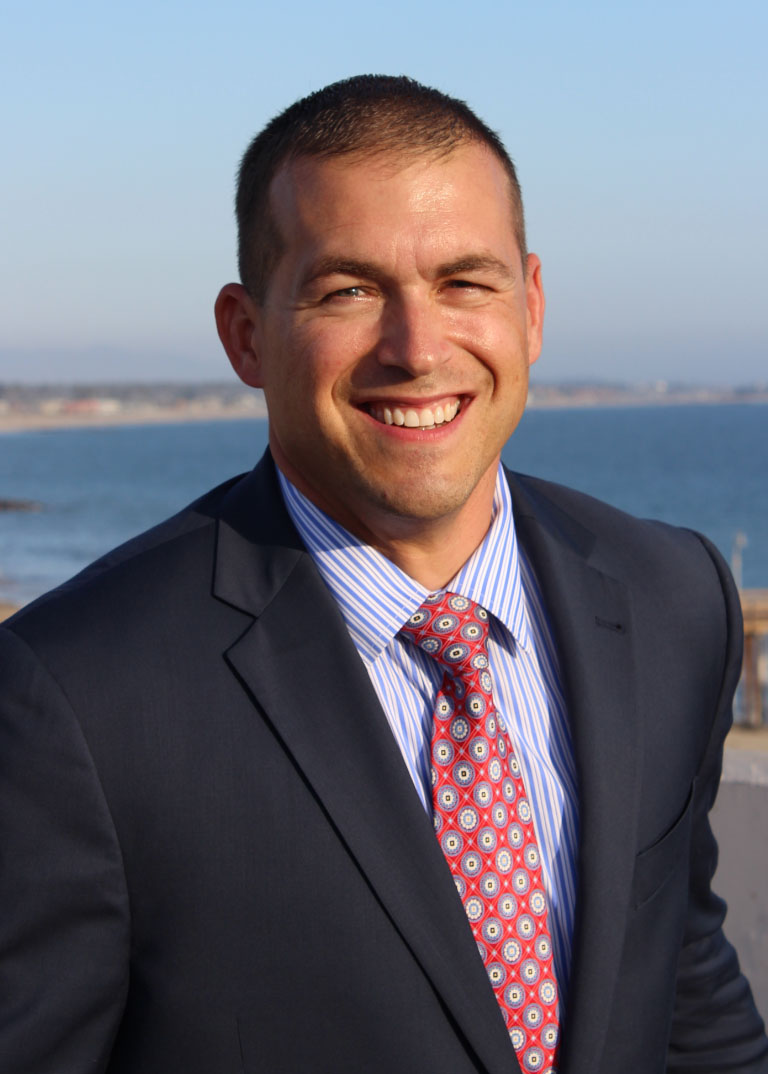The authorities are not on your side when caught and accused of a felony. The officers can mislead you during interrogation, and they will attempt to frighten you in some cases, regardless of the regulations. You might ask yourself what to do if you are facing criminal charges.
If you are in a legal dilemma and face a possible criminal prosecution, contact our experienced Ventura criminal defense attorney right away. With 28 years of expertise in criminal trials, Strongest Defense is confident in our ability to assist you in obtaining the best possible resolution in your criminal case.
Why Do I Need a Criminal Defense Lawyer?
The authorities can and will use everything you disclose after being detained against you in court. They will not be in your favor. The police may not be on your side, but our Ventura criminal defense attorney at Strongest Defense considers your liberties and their responsibilities very seriously.
What Makes an Exceptional Criminal Defense Attorney?
Criminal charges are complex legal issues. It is crucial to examine an attorney profile when selecting legal advice, along with the following:
- Criminal-Charge Defense Specialization: When choosing the best criminal defense attorney to counsel you, consider their specialization and experience. Our law firm focuses on criminal defense, family law, domestic violence, and sexual assault. We believe that doing so will enable us to provide you with the best possible answer for your situation. Consult with our criminal defense attorney as soon as possible.
- Knowledge of Jurisdiction Laws: Federal land policies differ considerably. In this instance, choosing a criminal defense attorney versed in local laws is your top choice. It makes sense in California to choose a criminal defense attorney conversant with California criminal law. Strongest Defense has decades of experience in criminal defense. We are here to help you.
- Relevant Case Experience: One criterion when selecting a criminal defense attorney is background in similar cases. Look for a lawyer with knowledge of the fields that your circumstance warrants. Strongest Defense has demonstrated throughout the years that we can handle any problem. Our criminal defense lawyer can guide you with anything ranging from facing felony and misdemeanor criminal charges in Ventura County and around California.
If your freedom is in jeopardy from a felony or arrestable offense in California, please call our law office or send us a message via our website. We assist clients who are involved in civil lawsuits.
Criminal Charges: How Do Cases Begin?
If you have a criminal charge or you’re being investigated for a crime, it’s essential to understand what happens next. Every jurisdiction has rules and procedures that guide how criminal cases move forward. This is just a general overview of some of the most common parts of the process.
The Arrest
In California, when the authorities arrest an individual (the defendant), they are taken to prison. Then one of three things happens:
- If the prosecution (typically the district attorney or the municipal attorney) decides not to pursue legal action, the accused is acquitted; or
- The perpetrator posts bail (sometimes known as a “bond”) or is freed on the stipulation that they appear in court subsequently for indictment. If each of these events occurs, the district attorney or policemen notify the accused when they must appear in court for sentencing; or
- The accused remains imprisoned. Personnel from police departments escort the inmate to the courtroom for sentence.
How the Case Starts
- The police generally penalize or apprehend someone and report the incident. This report outlines the events leading up to the detention or conviction and includes the names of witnesses and other relevant details. Defendants do not have a right to a printout of the police report, but their attorneys do. This is implemented to safeguard the anonymity of witnesses. This is another reason somebody charged with a felony offense must hire an attorney to defend them.
- The prosecution subsequently assesses if it is appropriate to file a lawsuit and, if so, what offenses to press. The prosecutor evaluates whether a crime should be treated as a felony or a misdemeanor. The prosecutor may pursue charges on all the violations against which the plaintiff was apprehended, or they may press lesser or more complaints than all those indicated in the court document.
- Since plaintiffs have the right to a speedy trial when the plaintiff is in custody, the prosecuting attorney should customarily file charges within 48 hours of the arrest (in county jail). Weekends, court holidays, and compulsory courtroom closing days do not count toward the 48-hour limit. Furthermore, the timeframe for indictment depends on the time of day you were apprehended, so speak with a lawyer to ascertain the defendant’s timetable regarding pressing charges.
Factors Considered by a Prosecutor
There are numerous factors they consider when deciding whether or not to “press charges.” These considerations include any evidence supporting guilt and whether it is admissible. Also considered are the victim’s or witnesses’ credibility and the extent of harm caused.
Whether or not the alleged crime is routinely prosecuted, as well as whether or not it is a minor offense. Furthermore, whether the alleged victim or accused is cooperative is essential, especially in domestic violence cases. Police reports are a primary consideration for a prosecutor when making a decision. They are usually the most pertinent documents to determine whether or not to pursue criminal charges.
A police report is usually written by the law enforcement or officer who made the arrest, and it is approved by a supervisor, usually a Sergeant. Because the officer who writes the arrest report is a first responder, the report contains all of the incident’s specifics, including statements from the victim, witnesses, and even the accused.
These reports frequently determine whether the elements of a crime are sufficient and whether there is sufficient credible evidence discovered at the scene to support the filing of criminal charges. Any of the factors listed above, by themselves or in combination, can persuade a prosecutor to file charges or not.
Charges are either dismissed, redirected to a non-court alternative, such as a City Attorney’s office hearing or the Neighborhood Justice Program, or filed. These final decisions are made by a prosecuting agency, which is not bound by the victim’s wishes. Criminal cases go through several stages, beginning with an arrest and ending with a prosecutor’s decision to file charges.
How Grand Juries Perform
When a crime is engaged, authorities will generally defer to grand juries to evaluate whether or not to press charges. Grand juries, like standard prosecution juries (known as “petit juries”), are composed of randomized participants. The grand jury hears evidence and determines whether complaints should be issued against a person—that is, to either prosecute somebody.
Bail and Arraignment
An arraignment is a legal procedure in which the prosecutor informs you of the accusations made against you and explains your rights and freedoms. The legal charge might be categorized as an offense, a misdemeanor, or a felony. No evidence will be presented, and no witnesses will be summoned to participate during the prosecution. The tribunal would set a date for upcoming trials.
Hearing on Bail
Another place where an experienced lawyer will help you is at the bond hearing. They may save you hundreds of dollars by appealing for a bail adjustment. A defendant held in prison on criminal charges has the right to modest bail. The court could authorize the bail discussion at the plea, or the lawyer may be ordered to file a legal motion and inform the prosecution of your intention to request a bail reduction. The prosecution will be able to dispute the decrease.
Plea Hearing
During the sentencing, you may enter a convicted, not guilty, or nolo contendere plea (no contest). This indicates you will not concede culpability but will agree that the prosecution has satisfied the main conditions of the act. You can also seek a deferral, which means that your hearing will be postponed until a subsequent time so that you may employ counsel.
Call our Criminal Defense Lawyer Right Away!
Whether you or someone you care about has been accused of a felony in Ventura, California, you should contact a criminal defense attorney at Strongest Defense immediately. Our attorney will use their legal knowledge to provide you with the best criminal defense possible. We have been battling civil court cases for over 28 years and are sure that we can actively safeguard your liberties and seek to attain the most favorable outcome for you. We can help you achieve success in court.
Criminal accusations are often tried in California, and an experienced criminal defense attorney may be the difference between your freedom and incarceration.
We represent clients charged with both misdemeanor and felony charges, such as violent crime, drug abuse, domestic abuse, sexual assault charge, and drunk driving charge.



